Agriculture & Land Management
Our Work
Latest in Agriculture & Land Management
-
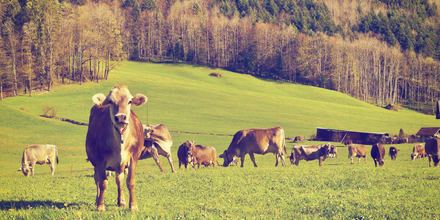
The consequences of climate change for EU Agriculture: Follow up to the COP21 UN Climate Change conference
With its potential to reduce GHG emissions and increase CO2 removals, agriculture has a key role to play in the EU’s climate mitigation efforts, yet Member State action is lacking. As pressure on the sector to act increases, the development of a 2050 low-carbon and resilience roadmap for European agriculture would be one step towards putting the sector on a more ambitious trajectory towards the transformation required to achieve net zero emissions by 2050.
-
Agriculture and its role in meeting the EU’s climate commitments
Sector far from reaching its climate mitigation potential, with Member States placing more emphasis on climate adaptation
-
What contributions can agricultural emissions make to the proposed Effort Sharing Regulation?
New IEEP report finds the agriculture sector can significantly contribute to the EU’s climate commitments by reducing its non-CO2 emissions. It also finds these contributions can be delivered cost efficiently with environmental co-benefits without impacting production.
-
Towards sustainability: Future policies for European livestock
The CAP is failing to reward adequately those livestock farmers who produce public goods. Brexit and CAP reform are opportunities to do better.
-
Ensuring the carbon sustainability of biomass
Ensuring the carbon sustainability of bioenergy requires a new approach in EU policy. This IEEP report spells out a different pathway to the one proposed by the European Commission in the recently released “winter package”.
-
Moving the debate on sustainable bioenergy to 2030
On 30th November, the European Commission published a “Winter package” of policy proposals, including for bioenergy in the form of a revised Renewable Energy Directive. Although encouraging to answer the many requests for policy certainty, a number of key questions about the right and most appropriate approach to deliver sustainable bioenergy still remain and need further scrutiny.
-
Are Ecological Focus Areas delivering for biodiversity?
Ecological Focus Areas are intended to safeguard and improve biodiversity on arable farms in the EU. What evidence is there that they are actually delivering biodiversity on farmland?
-
Ecological Focus Areas – what are their impacts on biodiversity?
Ecological Focus Areas are intended to safeguard and improve biodiversity on arable farms in the EU. This IEEP study for EEB and BirdLife examined the evidence for potential biodiversity impacts on farmland, taking into account how the areas are being managed.
-
Biofrontiers – sustainability critical to the development of advanced biofuels
Adherence to effective and workable sustainability criteria is an essential requirement when using public support to incentivise advanced alternative fuels.
-
Understanding the consequences of changing biomass demand for energy
Understanding the consequences of increased biomass demand for energy on the environment is central to the development of future policy on renewable energy in Europe. This study seeks to help answer this need by modelling different levels of biomass demand for energy and the consequences for land use and forest based industries.
-
The cascading use of woody biomass in the EU – challenges, opportunities and policy solutions
Improving the resource efficient use of wood through cascading the resource from one use to another, requires action throughout the wood flow. Current efforts focus on recovering and re-using waste wood but more could be done with the production and utilisation of wood processing residues and improving the balancing between the material and energy use of wood.
-
The PEGASUS project publishes its first Newsletter
Welcome to the first newsletter of the PEGASUS project! It provides information on the project’s progress to date and details on the 34 case studies currently underway in 10 EU countries examining how to ensure the improved delivery of public goods and ecosystem services in different farming and forestry situations.
-
IEEP sets out new sustainability criteria for biofuels post 2020
Defining effective and workable sustainability criteria for biofuels is one of the critical steps in decarbonising Europe’s energy sector. Such criteria must provide the necessary safeguards for the use of bioresources in Europe, as well as the policy and investment certainty required for sustainable deployment.
-
Sustainability criteria for biofuels post 2020
Defining effective and workable sustainability criteria is one of the critical steps in decarbonising Europe’s energy sector. They must provide the necessary safeguards for the use of bioresources in Europe, as well as the policy and investment certainty required for sustainable deployment.
-
Improving environmental financing via result-based agri-environment measures
A new article by IEEP explores the use of result-based agri-environment measures in the region of Baden-Württemberg, Germany. The study shows that result-based schemes can increase the environmental effectiveness and conditionality of the EU Common Agricultural Policy.
-
Learning the lessons from CAP greening
What is the most cost-effective way to encourage basic environmental management across the farmed countryside in the EU-28? Learning from experience to date in greening Pillar 1 of the CAP, this report considers a range of options to increase the environmental added value from greening.
-
Mapping study on the cascading use of wood products
Promoting the cascading use of wood through policy is one approach to improve resource efficiency and increase the overall availability of wood for use in a variety of sectors.
-
A circular bio-economy in the European agriculture and forestry sectors
IEEP experts call for bridging the circular and bio-economy concepts, to support the transition of Europe’s land using sectors to a more resource efficient and sustainable future.
-
Land suitability assessments for bioenergy feedstocks in the EU – a review of data sources
Current data availability is inadequate to undertake a detailed national or European level study of land areas that are underutilised and could be considered available for bioenergy production within the EU.
-
New report launch: Call for a new vision for responsible renewable energy with a clear European dimension
Claude Turmes MEP hosted an event launching both IEEP’s report and a debate on the future of renewable energy in Europe. In the our report IEEP present how a resource efficient energy system might be delivered in a way that minimises impact on biodiversity and the wider environment.
Related
-

Debating the Future of The Common Agricultural Policy
The IEEP's platform to share thoughtful commentary and analysis on the future development of European agriculture and rural development policy.
Highlights
-

The consequences of climate change for EU Agriculture: Follow up to the COP21 UN Climate Change conference
With its potential to reduce GHG emissions and increase CO2 removals, agriculture has a key role to play in the EU’s climate mitigation efforts, yet Member State action is lacking. As pressure on the sector to act increases, the development of a 2050 low-carbon and resilience roadmap for European agriculture would be one step towards putting the sector on a more ambitious trajectory towards the transformation required to achieve net zero emissions by 2050.
-
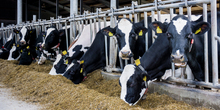
What contributions can agricultural emissions make to the proposed Effort Sharing Regulation?
New IEEP report finds the agriculture sector can significantly contribute to the EU’s climate commitments by reducing its non-CO2 emissions. It also finds these contributions can be delivered cost efficiently with environmental co-benefits without impacting production.
-

Ensuring the carbon sustainability of biomass
-

Ecological Focus Areas – what are their impacts on biodiversity?
-

Understanding the consequences of changing biomass demand for energy
-

The cascading use of woody biomass in the EU – challenges, opportunities and policy solutions
-
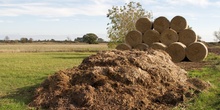
Sustainability criteria for biofuels post 2020
-

Learning the lessons from CAP greening
-

Land suitability assessments for bioenergy feedstocks in the EU – a review of data sources
-

The EU’s climate targets, land use, and forests: delivering biodiversity-friendly mitigation
-

CAP greening: what are its environmental prospects?
-
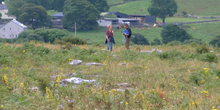
Results-based agri-environment schemes: new report and guidance handbook available
-
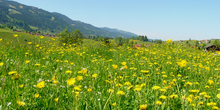
Result-based agri-environment measures: market-based instruments, incentives or rewards?
-

Re-examining EU biofuels policy: A 2030 perspective
-

Biofuels and ILUC – Q&A
-

Land as an Environmental Resource
-

Land Stewardship in England post 2013: CAP greening and agri-environment
-

Redesigning the CAP to deliver public goods
-

Costs of delivering environmental benefits through agriculture and forestry management
-
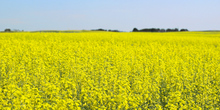
The Indirect Land Use Change Impact of the Use of Biofuels in the EU
